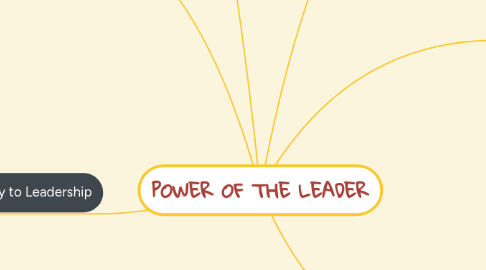
1. Expert Power
1.1. is based in the special knowledge, skills, and expertise that a leader possesses.
1.2. this changes according to the level of the leader in the hierarchy
1.2.1. First-line managers and middle managers
1.2.1.1. derive expert power from their technical expertise
1.2.1.2. derive their expert power from their abilities as decision makers, planners, and strategists.
1.2.2. Expert power tends to be used in a guiding or coaching manner rather than in an arrogant, high-handed manner.
1.2.3. Effective leaders take steps to ensure that they have an adequate amount of expert power to perform their leadership roles.
2. Reward Power
2.1. is the ability of a manager to give or withhold rewards.
2.1.1. tangible rewards
2.1.1.1. Salary increases, bonuses, work assignments according to personal preferences
2.1.2. intangible rewards
2.1.2.1. verbal praise, respect
2.2. Effective managers use their reward power so that subordinates feel that their rewards signal that they are doing a good job.
2.3. Members of an organization are motivated to perform at a high level by a variety of rewards.
3. The Key to Leadership
3.1. To affect other people’s behavior and get them to act in certain ways.
3.2. Effective leaders take steps to ensure that they have sufficient levels of each type and that they use the power in beneficial ways.
4. Coercive Power
4.1. is the ability of a manager to punish others.
4.1.1. legislation of the countries
4.1.2. verbal reprimands salary reductions dismissal
4.2. Managers who rely heavily on coercive power tend to be ineffective as leaders.
4.3. Excessive use of coercive power seldom produces high performance and is ethically questionable
4.3.1. It strips workers of their dignity and causes excessive levels of stress
5. Legitimate Power
5.1. is the authority a manager has by virtue of his or her position in an organization’s hierarchy.
5.1.1. Personal leadership style often influences how managers exercise legitimate power.

